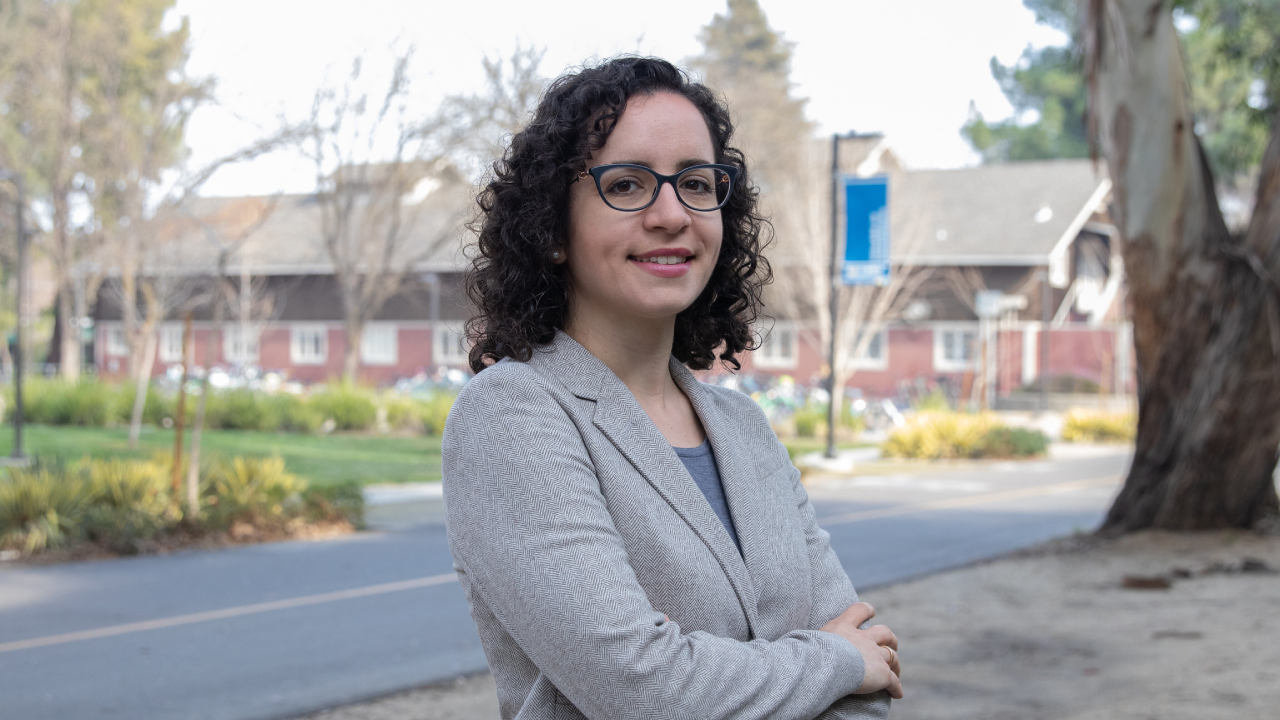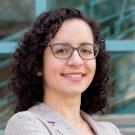
Professor Marina Radulaski Receives NSF CAREER Award
Prof. Radulaski is developing quantum nanophotonic devices to enable the next generation of quantum hardware
Marina Radulaski, assistant professor of Electrical and Computer Engineering, has received a prestigious National Science Foundation CAREER award for the project entitled Scalable Quantum Photonics based on Color Center Integration with Angle-etched Silicon Carbide Devices.
The Faculty Early Career Development (CAREER) Award is one of the National Science Foundation’s most prestigious awards, conferred to early-career faculty who have the potential to serve as academic role models in research and education and to lead advances in the mission of their department or organization. Such activities should build a firm foundation for a lifetime of leadership in integrating education and research.
Prof. Radulaski leads the Quantum Nanophotonics Lab (R-Lab) at UC Davis ECE to explore the potential of quantum technologies to further our understanding of nature’s fundamental phenomena, as well as to provide unprecedented infrastructure for powerful computation and safe communication. While there is a multitude of contenders for physical implementation of quantum systems, her research focuses on two desired properties. First, the light-based solutions benefit from the advantage of long-distance connectivity; and second, the solid-state platforms support advantageous device scaling. Prof. Radulaski’s NSF CAREER project sets to explore the intersection of these two paradigms: optically active defects in semiconductors, called color centers. More specifically, the technical part of the project aims to solve a challenging problem of integrating color centers into nanophotonic devices, thus improving the quantum hardware performance for applications in quantum communication, computation and simulation.
The educational impact of the project is significant for the training of an inclusive quantum workforce. The diverse student population of UC Davis and the surrounding region will be exposed to quantum photonic programs to expand the pipeline of students trained for STEM careers. Prof. Radulaski's team will create an interactive quantum educational software, organize outreach activities at the Boys and Girls Club of Greater Sacramento and Woodland’s Pioneer High School, and integrate hands-on research modules in her Quantum Information Technologies graduate course at UC Davis.

